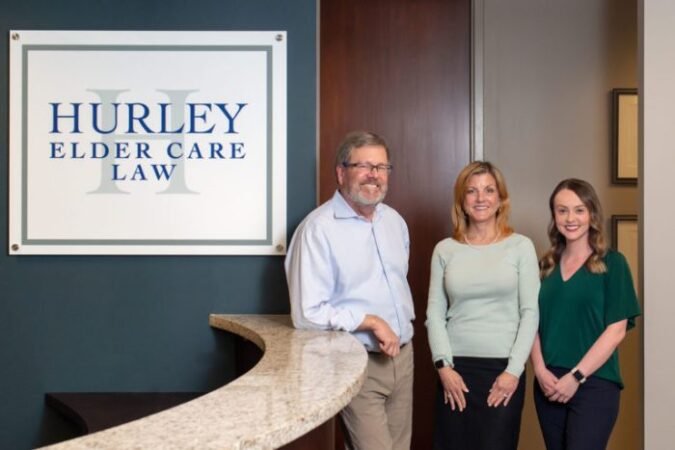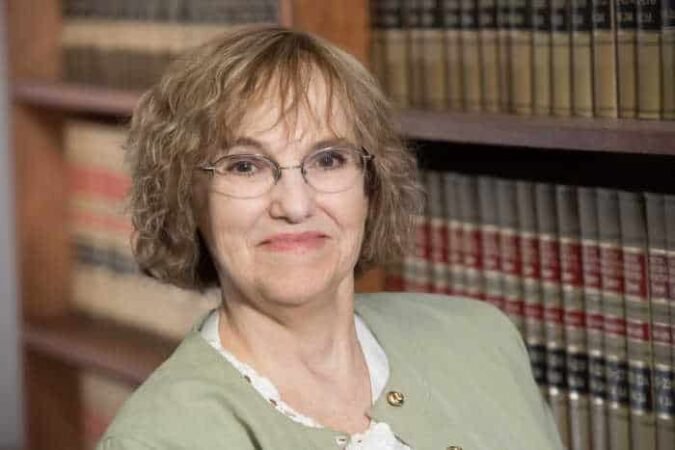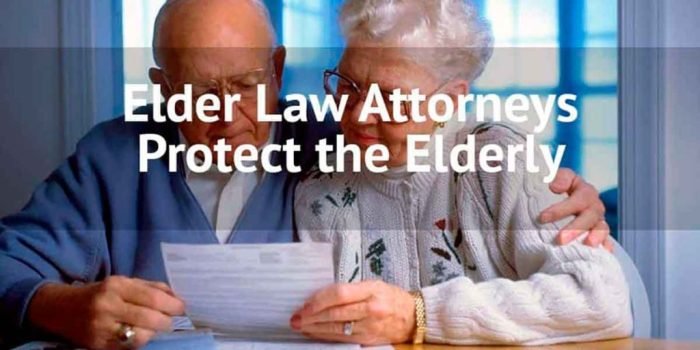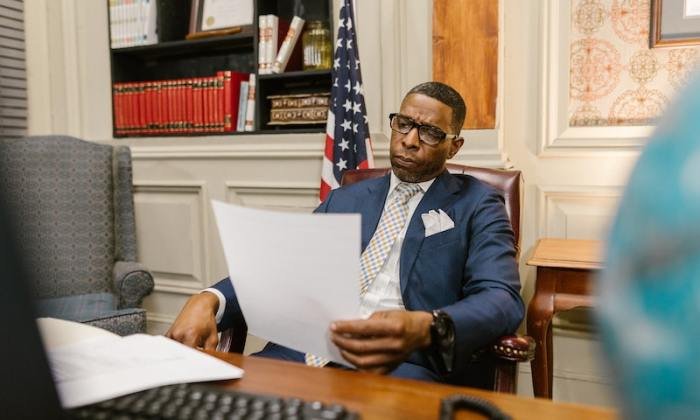
Navigating the complexities of elder law can be daunting, especially in a vibrant city like Brownsville, Texas. This guide explores the unique challenges faced by the elderly population in Brownsville, highlighting the crucial role of experienced elder law attorneys in protecting their rights and well-being. From estate planning and power of attorney to addressing elder abuse and securing government assistance, we’ll delve into the multifaceted world of elder law in this dynamic Texas community. We aim to equip you with the knowledge to make informed decisions and find the right legal support for your family.
Understanding the specific legal landscape of Brownsville is key to ensuring your loved ones receive the appropriate care and protection. This includes familiarity with relevant state and federal laws, access to local resources, and a clear understanding of the services offered by elder law firms in the area. We will examine various case studies to illustrate the practical application of elder law principles in Brownsville, providing real-world examples of how attorneys help their clients navigate challenging situations.
Understanding Brownsville, Texas Elder Law

Brownsville, Texas, boasts a rich history and a vibrant culture, but its rapidly aging population presents unique legal challenges. Understanding the specific demographic characteristics of Brownsville’s elderly residents is crucial for effectively addressing their legal needs. This necessitates a deep understanding of the common legal issues they face and the types of elder law cases handled by attorneys in the area.
Demographic Characteristics of Brownsville’s Elderly Population
Brownsville has a significant elderly population, with a higher percentage of individuals aged 65 and older compared to the national average. This population is characterized by a high proportion of Hispanic individuals, reflecting the city’s overall demographics. Many are long-term residents with deep community ties, while others are retirees who have relocated to Brownsville for its climate and cost of living. This diverse background contributes to a range of unique legal situations and needs. A significant portion may also face language barriers or limited access to resources, further complicating legal matters.
Common Legal Issues Faced by Elderly Residents in Brownsville
Elderly residents in Brownsville frequently encounter legal issues related to healthcare, finances, and estate planning. Common concerns include navigating Medicare and Medicaid benefits, managing long-term care expenses, protecting assets from creditors, and preparing for incapacity or death. Issues related to elder abuse, including financial exploitation and neglect, are also prevalent and require careful legal intervention. The unique challenges faced by the Hispanic elderly population, such as cultural barriers to accessing legal services, further complicate these issues.
Types of Elder Law Cases Handled by Brownsville Attorneys
Brownsville elder law attorneys handle a broad spectrum of cases. These include estate planning, which involves drafting wills, trusts, and powers of attorney; probate, dealing with the administration of estates after death; Medicaid planning, assisting clients in qualifying for government assistance with long-term care; and guardianship and conservatorship, representing individuals who are no longer capable of managing their own affairs. Furthermore, they frequently address cases involving elder abuse and neglect, advocating for their clients’ rights and well-being. Cases involving age discrimination and long-term care facility disputes are also common.
Relevant State and Federal Laws Impacting Elderly Residents of Brownsville
Elderly residents of Brownsville are subject to various state and federal laws designed to protect their rights and well-being. These include federal laws like the Medicare and Medicaid Acts, which govern healthcare coverage and benefits for seniors. At the state level, Texas has specific laws addressing guardianship, conservatorship, and elder abuse. The Texas Estate Code governs wills, trusts, and probate proceedings. Understanding these laws is crucial for effectively representing elderly clients and ensuring their rights are protected. For example, the Texas Adult Protective Services (APS) plays a vital role in investigating and responding to reports of elder abuse and neglect. Navigating these complex legal frameworks requires the expertise of a qualified Brownsville elder law attorney.
Services Offered by Brownsville Elder Law Attorneys
Brownsville elder law attorneys provide a comprehensive range of legal services designed to protect the rights and well-being of senior citizens and their families. These services address the complex legal and financial issues unique to aging, ensuring a smooth transition through this life stage. The specific services offered can vary between firms, but generally encompass a wide spectrum of legal expertise.
Comparison of Services Offered by Brownsville Elder Law Firms
The following table compares and contrasts the services offered by different (hypothetical) Brownsville elder law firms. Note that this is for illustrative purposes only and actual services may vary. It is crucial to contact individual firms for accurate and up-to-date information.
| Law Firm | Estate Planning | Medicaid Planning | Probate & Administration | Guardianship & Conservatorship |
|---|---|---|---|---|
| Firm A | Wills, Trusts, Power of Attorney | Medicaid applications, asset protection strategies | Estate administration, probate litigation | Guardianship petitions, conservatorship management |
| Firm B | Wills, Trusts, Healthcare Directives | Medicaid planning, VA benefits planning | Estate administration, will contests | Guardianship and conservatorship |
| Firm C | Estate planning, tax planning for seniors | Medicaid asset protection, long-term care planning | Probate, trust administration | Guardianship, conservatorship, elder abuse litigation |
| Firm D | Special Needs Trusts, Charitable Trusts | Medicaid applications, appeals | Estate administration, tax resolution | Limited Guardianship |
Estate Planning for Elderly Clients in Brownsville
Estate planning for elderly clients in Brownsville typically involves creating legal documents that dictate how their assets will be managed and distributed after their death or incapacity. This process helps ensure the client’s wishes are respected and minimizes potential family conflicts. Key components often include drafting wills, establishing trusts (such as revocable living trusts or special needs trusts), creating durable powers of attorney for finances and healthcare, and executing advance healthcare directives (living wills). These documents work together to provide a comprehensive plan for managing assets and healthcare decisions. A thorough estate plan considers tax implications, asset protection, and the client’s specific family circumstances.
Obtaining Power of Attorney in Brownsville
Obtaining a power of attorney in Brownsville involves a relatively straightforward process.
- Consult with an Attorney: The first step is to schedule a consultation with an elder law attorney in Brownsville. The attorney will help determine the appropriate type of power of attorney (financial or healthcare) and guide you through the process.
- Complete the Power of Attorney Document: The attorney will prepare the power of attorney document, which will specify the powers granted to the agent (the person designated to act on behalf of the principal).
- Witness and Notary: The power of attorney document typically requires witnesses and notarization. The attorney will ensure the document is properly executed.
- Safekeeping: The completed power of attorney document should be stored in a safe and accessible location.
Examples of Successful Cases Handled by Brownsville Elder Law Attorneys
While specific case details are often confidential due to client privacy, successful cases frequently involve the effective use of legal strategies to protect assets and ensure the well-being of elderly clients. For example, an attorney might successfully challenge a nursing home’s billing practices, securing a refund for an overcharged client. In another instance, an attorney might successfully navigate the complex Medicaid application process, allowing a client to qualify for long-term care coverage. Another example might involve the successful establishment of a special needs trust, preserving assets for a disabled beneficiary while maintaining eligibility for government benefits. These successes often hinge on the attorney’s thorough understanding of elder law, their ability to negotiate effectively, and their experience in litigating when necessary.
Finding and Choosing an Elder Law Attorney in Brownsville
Selecting the right elder law attorney is crucial for navigating the complexities of aging and estate planning. A skilled attorney can provide invaluable guidance and support, ensuring your loved ones’ well-being and protecting your assets. Choosing wisely requires careful consideration of several key factors.
Criteria for Selecting a Qualified Brownsville Elder Law Attorney
The selection process should prioritize experience, specialization, and client communication. Look for an attorney with a proven track record in elder law, demonstrating a deep understanding of relevant legislation, such as Medicaid, Medicare, and Social Security. A strong reputation within the Brownsville community is also a valuable indicator of competence and ethical practice. Consider the attorney’s accessibility and responsiveness to client needs; effective communication is paramount during a potentially stressful time.
Fee Structures of Brownsville Elder Law Attorneys
Elder law attorneys typically utilize various fee structures. Hourly rates are common, where the attorney charges a predetermined amount for each hour of work. Flat fees are used for specific services, such as drafting a will or establishing a trust. Contingency fees, where payment depends on the outcome of the case, are less frequent in elder law but may be offered in certain situations. It’s essential to understand the attorney’s fee structure upfront to avoid unexpected costs and ensure transparency in billing practices. For example, an hourly rate might be $250-$500 per hour, while a flat fee for a simple will could range from $500 to $1500, depending on the complexity.
Importance of Client Testimonials and Reviews
Client testimonials and online reviews provide valuable insights into an attorney’s professionalism, competence, and communication style. Positive feedback reflects satisfied clients who felt their concerns were addressed effectively and their legal needs met. Negative reviews, while potentially highlighting areas for improvement, should be examined carefully to understand the context and determine if the issues are systemic or isolated incidents. Websites like Avvo, Yelp, and Google My Business often feature attorney reviews, offering a broad perspective on client experiences. Reading several reviews helps establish a balanced understanding of an attorney’s reputation.
Questions to Ask Potential Brownsville Elder Law Attorneys
A pre-consultation checklist is highly recommended. Ask about the attorney’s experience specifically in elder law cases similar to yours. Inquire about their approach to client communication and availability. Clarify their fee structure and payment options. Understand their process for handling cases and their estimated timeline for completion. Don’t hesitate to ask about their success rate in similar cases and how they plan to address your specific concerns. Finally, request references from past clients. This proactive approach ensures you select an attorney who meets your needs and expectations.
Common Elder Law Concerns in Brownsville

Navigating the complexities of aging can present numerous legal challenges, particularly in a vibrant community like Brownsville, Texas. Understanding the prevalent elder law concerns is crucial for both elderly residents and their families to ensure their well-being and protect their rights. This section will address some of the most common issues faced by the elderly population in Brownsville.
Prevalent Elder Abuse Scenarios in Brownsville
Elder abuse, sadly, is a significant concern across the nation, and Brownsville is not immune. Common scenarios include financial exploitation, where unscrupulous individuals take advantage of an elderly person’s assets or finances. This can range from outright theft to subtle manipulation, such as forging signatures on checks or coercing them into making unfavorable financial decisions. Physical abuse, encompassing acts of violence or neglect resulting in physical harm, is another serious issue. Emotional or psychological abuse, characterized by verbal harassment, intimidation, or isolation, can also have devastating consequences on an elder’s mental and emotional health. Neglect, the failure to provide necessary care, including medical attention, food, or hygiene, is another form of abuse that often goes unreported. These forms of abuse can be perpetrated by family members, caregivers, or even strangers.
Legal Processes in Resolving Elder Abuse Cases
Addressing elder abuse involves a multi-faceted legal process. The first step typically involves reporting the suspected abuse to Adult Protective Services (APS) or law enforcement. APS investigates the allegations and, if abuse is confirmed, may take steps to ensure the elder’s safety, such as removing them from an abusive situation or arranging for alternative care. Law enforcement may initiate criminal investigations if a crime has been committed, leading to potential arrests and prosecution. Civil lawsuits may also be filed to recover financial losses or seek compensation for damages caused by the abuse. Elder law attorneys play a critical role in these cases, representing the elder’s interests, navigating the legal complexities, and advocating for their rights and safety. The specific legal procedures will vary depending on the type of abuse and the circumstances of the case.
Applying for Medicaid and Other Government Assistance Programs
Medicaid and other government assistance programs, such as Supplemental Security Income (SSI), provide vital financial support for many elderly residents in Brownsville facing financial hardship. The application process for Medicaid involves providing detailed information about income, assets, and medical expenses. Eligibility is determined based on specific income and resource limits. SSI provides cash assistance to elderly individuals and disabled adults with limited income and resources. Navigating these applications can be complex, requiring careful documentation and adherence to specific guidelines. Assistance from elder law attorneys or social workers specializing in government benefits can significantly simplify the process and increase the chances of successful application. Many non-profit organizations also offer assistance with applications and related paperwork.
Resources Available to Elderly Residents in Brownsville
Brownsville offers a range of resources to support its elderly population. Several community centers provide social activities, meals, and transportation services. Non-profit organizations, such as the local chapter of the Area Agency on Aging, offer a variety of services, including case management, counseling, and referrals to other resources. These organizations often provide assistance with accessing government benefits, coordinating healthcare services, and connecting elders with community support networks. Furthermore, religious institutions and volunteer groups frequently offer assistance with errands, home repairs, and companionship, helping to maintain the independence and quality of life for older adults in Brownsville. Information about these resources is often available through the city’s website, local libraries, and community centers.
Illustrative Case Studies
This section presents hypothetical case studies illustrating the types of elder law challenges faced by Brownsville residents and how an experienced elder law attorney can provide effective solutions. These examples are not intended to represent specific cases but rather to highlight common issues and legal strategies.
Long-Term Care Planning for a Brownsville Resident
Mrs. Rodriguez, a 78-year-old Brownsville resident, is facing declining health and requires increasing levels of care. She owns her home and has modest savings. Her children are concerned about the escalating costs of long-term care and want to ensure her financial security and her wishes are respected. The legal issues involve planning for potential nursing home placement, Medicaid eligibility, and preserving her assets for her children’s inheritance. An elder law attorney would help Mrs. Rodriguez explore options like creating a trust to protect assets, applying for Medicaid benefits, and drafting a durable power of attorney for healthcare decisions. The attorney’s role also includes advising the family on the best course of action based on Mrs. Rodriguez’s specific circumstances and financial situation. This would involve navigating complex regulations and ensuring her rights are protected throughout the process.
Steps Involved in a Guardianship Case in Brownsville
A visual representation of the steps in a Brownsville guardianship case would show a flowchart. The first step would be a petition filed with the court by a family member or concerned party demonstrating the need for a guardian. The second step would involve a court investigation, potentially including a medical evaluation of the incapacitated individual. Third, a hearing would be held where evidence is presented to the judge. The fourth step would be the court’s decision, appointing a guardian if deemed necessary. The final step would be ongoing court supervision of the guardian’s actions to ensure the ward’s well-being and protection of their assets. The flowchart would clearly indicate the potential for appeals at various stages.
Probate Case with Complex Family Dynamics in Brownsville
Mr. Garcia, a Brownsville resident, passed away leaving behind a will that designates his assets to be divided amongst his three children. However, two of his children contest the will, claiming undue influence and contesting the validity of the document. The attorney representing the executor of the will would employ legal strategies including thorough document review to verify the will’s authenticity and adherence to legal requirements. They would also gather evidence to refute claims of undue influence, potentially interviewing witnesses and presenting financial records. If necessary, the attorney would prepare for and participate in mediation or litigation to resolve the disputes among the heirs, aiming for a fair and legally sound distribution of Mr. Garcia’s estate in accordance with Texas probate law.
Financial Exploitation of an Elderly Brownsville Resident
Ms. Hernandez, a 90-year-old Brownsville resident, is experiencing significant financial losses due to a caregiver who is exploiting her. The legal actions that can be taken include filing a police report to initiate a criminal investigation into the caregiver’s actions. Simultaneously, a civil lawsuit could be filed to recover the misappropriated funds. An elder law attorney would play a crucial role in gathering evidence of the exploitation, such as bank statements, and presenting a compelling case to law enforcement and the court. The attorney would also work to protect Ms. Hernandez’s remaining assets and ensure her financial security going forward, potentially by obtaining a temporary restraining order to prevent further financial harm.
Ending Remarks

Securing the future for elderly loved ones requires proactive planning and the guidance of a knowledgeable Brownsville elder law attorney. By understanding the unique challenges faced by seniors in Brownsville and the diverse services available, families can navigate the legal complexities with confidence. This guide serves as a starting point, empowering you to make informed choices and secure the best possible care and legal representation for your family members. Remember, seeking professional legal advice is crucial in ensuring a smooth and legally sound process.
Clarifying Questions
What are the common types of elder abuse in Brownsville?
Common forms include financial exploitation, neglect, physical abuse, and emotional abuse. These can manifest in various ways, from theft of assets to withholding necessary care.
How much does an elder law attorney in Brownsville typically charge?
Fees vary widely depending on the attorney, the complexity of the case, and the services required. Some attorneys charge hourly rates, while others may offer flat fees for specific services. It’s essential to discuss fees upfront.
What is the process for obtaining guardianship in Brownsville?
This involves filing a petition with the court, demonstrating the need for guardianship, and undergoing a court hearing. An attorney can guide you through the necessary steps and paperwork.
What resources are available for elderly residents in Brownsville needing assistance?
Numerous organizations offer support, including senior centers, non-profit agencies, and government programs. Your attorney can help you identify and access appropriate resources.





